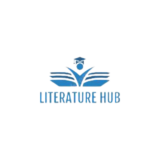The Dining Table by Elvis Gbanabon Hallowell
The Poem
Dinner tonight comes with
gun wounds. Our desert
tongue lick the vegetable
blood – the pepper
strong enough to push scorpions
up our heads. Guests
look into the ocean bowls
as vegetables die on their tongues.
The table that gathers us is an island where guerillas
walk the land while crocodiles
surf. Children from Alphabeta with empty palms dine
with us; switchblades in their eyes,
silence in their voices. When the playground
is emptied of children’s toys
who needs roadblocks? When the hour
to drink from the cup of life ticks,
cholera breaks its spell on cracked lips.
Under the spilt
milk of the man, I promise
to be a revolutionary, but my Nile, even
without tributaries becomes lazy
upon its own Nile. On this
night reserved for lovers of fire, I ‘m
full with the catch of gun wounds and my boots
have suddenly become too reluctant to walk me.
Content
This poem is born out of the civil war that took place in Sierra Leone between 1991 and 2002. The poem chronicles the experiences and what the people passed through during the period.
The poem starts with the experience of a family having their dinner on a dining table. As raids are mostly carried out at the night, gunshots are heard as they eat their food outside the house, “Dinner tonight comes with the gun wound.”
This makes them lose interest in the food, but their lives. The results of the fears dry their tongues, “Our desert tongue lick the vegetable blood.” The food is tasteless as a result of the fear.
The second stanza explains the atrocities committed against mankind during the war. The house of this family is very close to an island, where the warriors move about to attack or raid, hence they are caught between the devil and the deep red sea as crocodiles are on the other side waiting for their prey.
Children also have their own experiences, they run helter-skelter for safety when they hear the gunshot. Children from Alphabeta Nursery and Primary school are dying of malnutrition. These children run to this family to dine with them with fear in their faces and there are no toys to play
with. These make them remain silent. There is a breakdown of diseases, especially cholera during the war.
In the third stanza, the poet is disturbed and annoyed by the level of waste of life and the destruction of properties during the war. He then offers to lead a revolution under the cover of the night, “under the spilt
Milk of the moon.”
But he fails in the end because nobody supports him
“……but my Nile, even
without tributaries lazy.”
He is seriously wounded by his attackers.
Themes
War: This poem’s main subject matter is on war. It discusses the civil war in Sierra Leone between 1991 and 2002.
Fear: There is fear everywhere because anything can happen at any time as a gunshot is heard sporadically and also crocodiles are around the island. There is no rest of mind for the people. The crocodiles are awaiting anybody that escapes from the warriors.
Epidemics: There is the breakdown of diseases like cholera as a result of unhealthy living. Many people are killed through the breakdown of diseases, especially children.
Malnutrition: The people are not well fed, especially the children. That is why the kids of Alphabeta Nursery and Primary school run to the poem persona and join the family on the dining table to eat.
Revolution: The poem persona offers to lead a revolution when he is annoyed by the activities of the warriors but fails because the people do not support him.
Tragedy: When there is war there is bound to be tragic scenes as experienced by the people, including the persona who is seriously wounded when he offers to lead a revolution. People are also maimed and many people lost their lives.
Poetic Devices
Metaphor: We have this in stanza one, “our desert tongue lick the vegetable blood.” This metaphorically refers to the loss of appetite as a result of the fears created by the war.
Personification: In line eight of the poem, the vegetable is personified thus, “vegetable die on their tongue” to explain that the food is tasteless in their mouth because of the fear.
Alliteration: We have this in line 20, “milk of the moon I promise.”
Repetition: Some words and phrases are repeated in the poem for emphasis purposes, they are gun wounds, vegetable tongues, and children.
Language: The poem is technical as a result of the combination of words and imagery to express the harrowing experiences that the people are exposed to during the war.
Symbolism: The poet makes use of symbols to explain the negative effects of the war on the people, e.g. “desert tongue.” A desert is a place where nothing can grow. This explains how tasteless their tongues are as a result of fears during the wear
“……the pepper
strong enough to push scorpion
up our heads.”
Imagery: The use of symbols by the poet result in imagery. The mental picture of the discourse reflects in the brain of the readers. It makes the better understanding of the poem easier.
Enjambment: This is otherwise known as run-on-line. The lines lead to one another.
